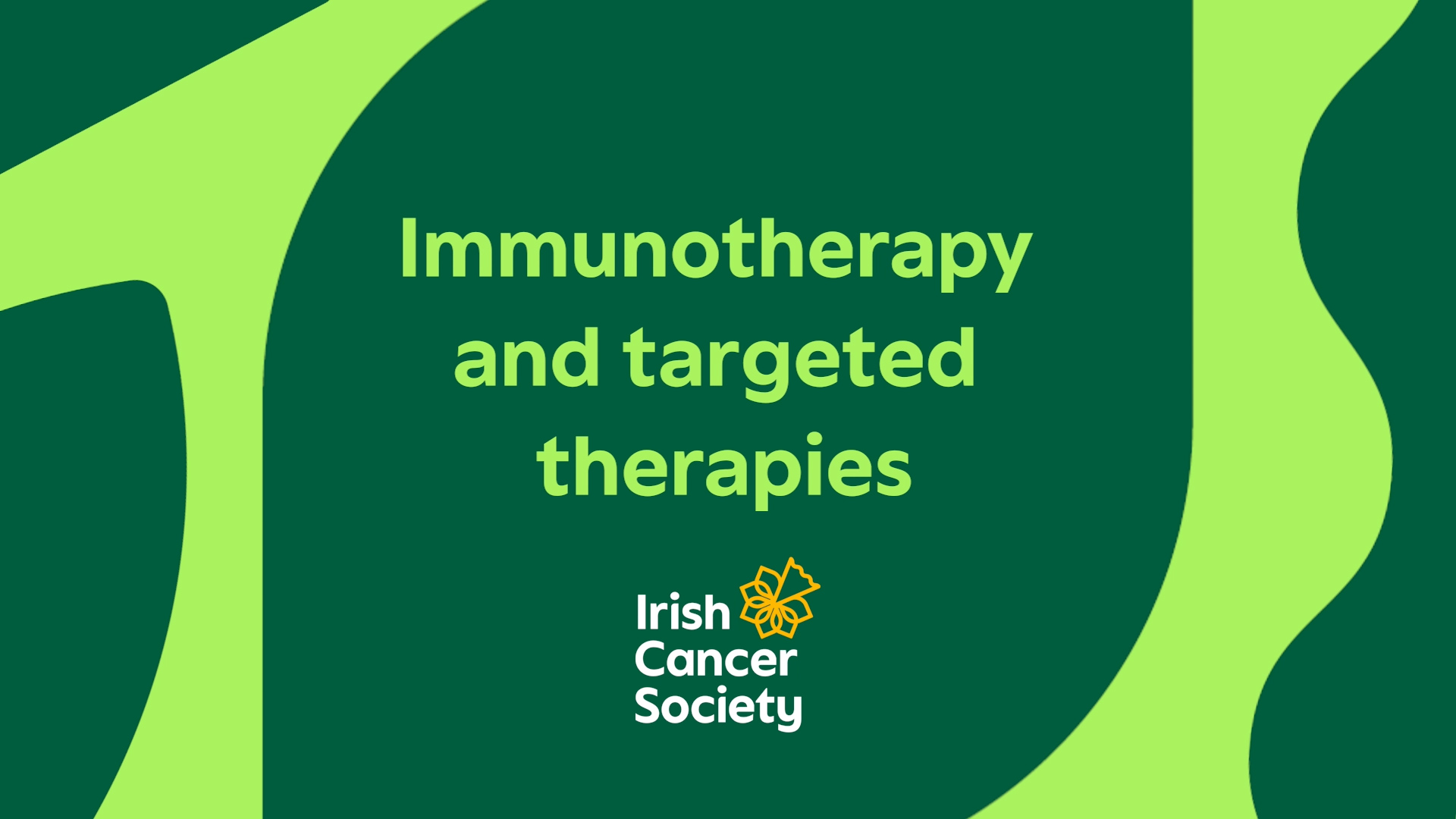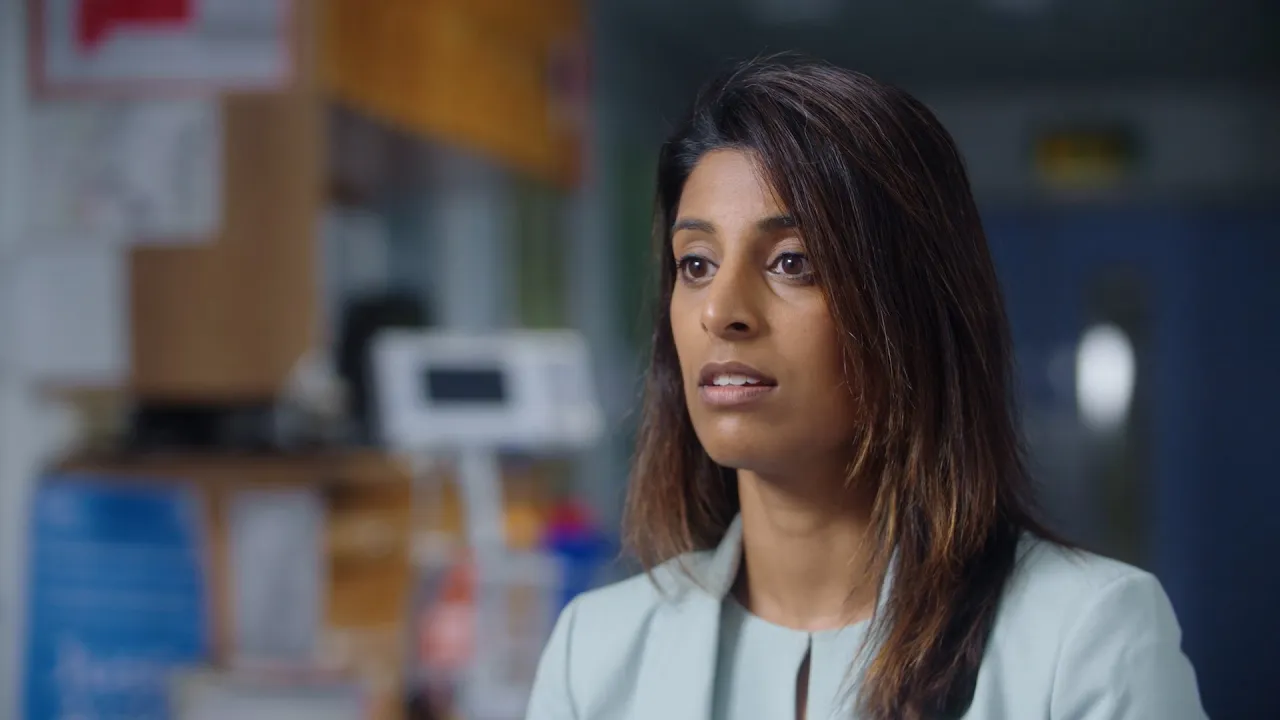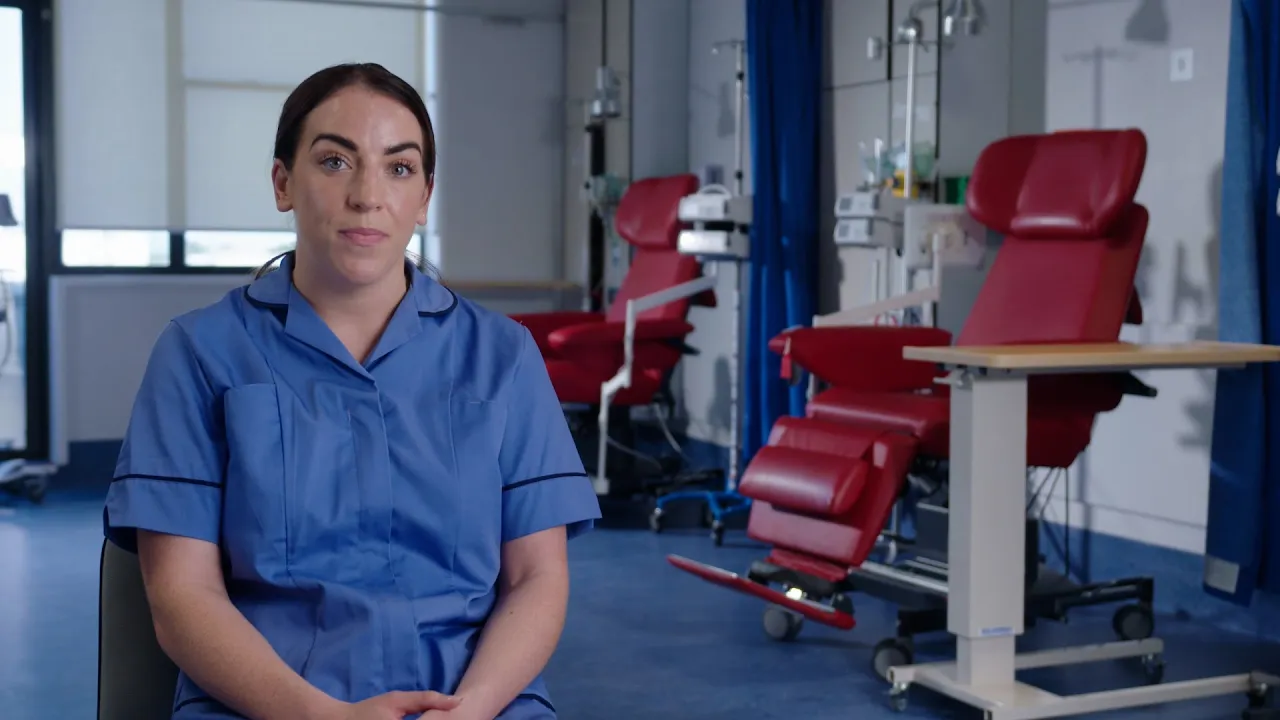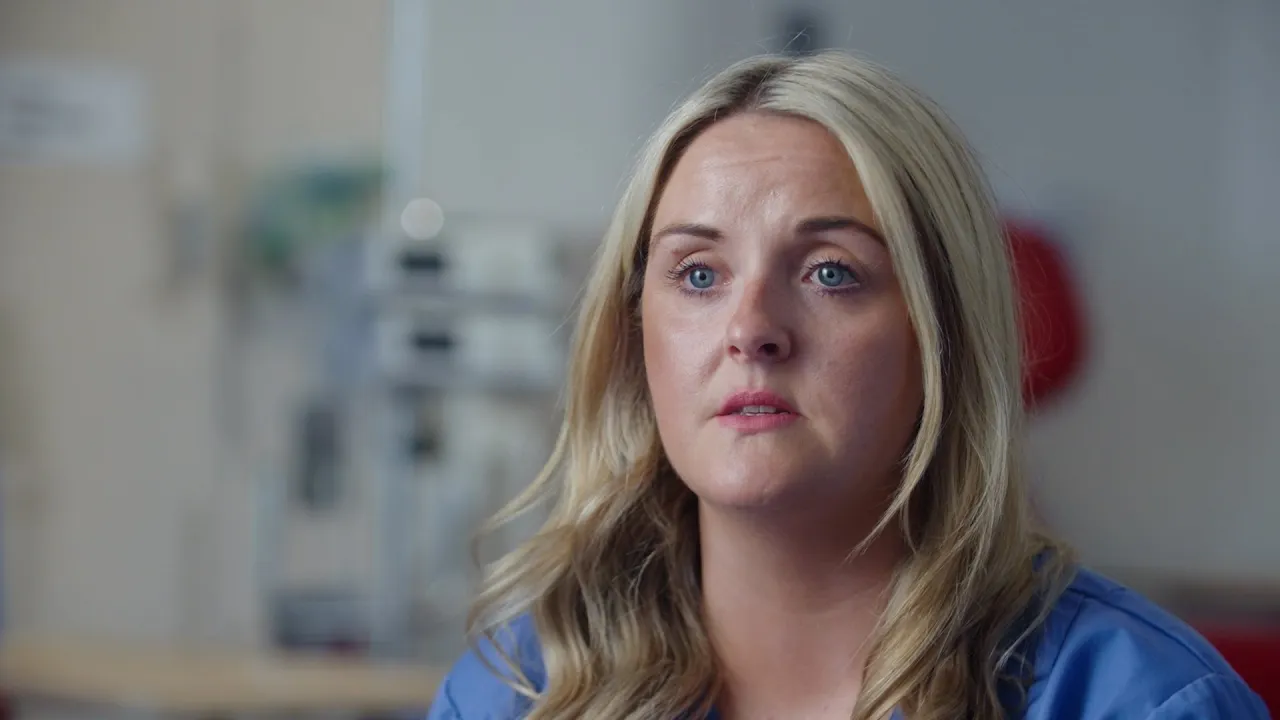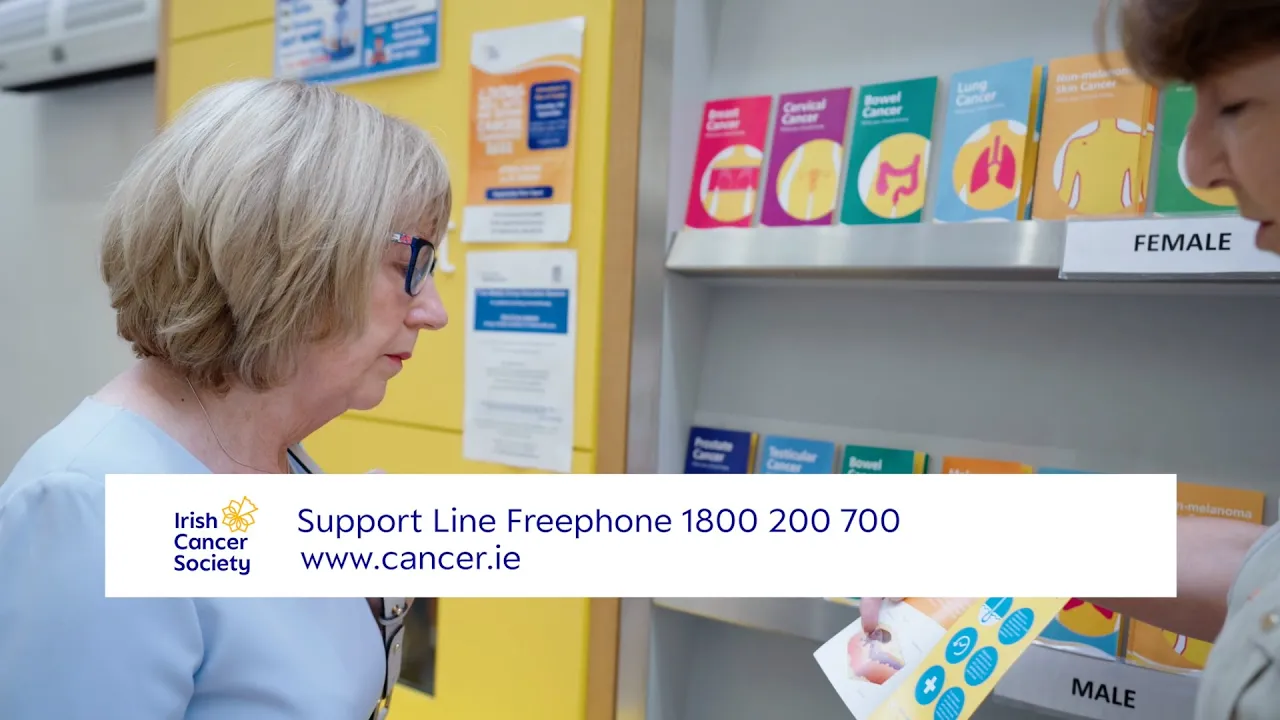Immunotherapy and targeted therapies 3: Your treatment plan
This video explains what you need to know about your treatment plan and covers what to expect before and during treatment in the hospital.
0:04
Your consultant and the team will work with you to create a treatment plan specifically tailored for your situation. You and a family member may have already attended the clinic and your team may have outlined your treatment plan to you. If not, this will take place shortly.
0:23
It is an opportunity for you to ask questions. If you can, write down your questions in advance and bring another person with you to clinic to write down what is said, and to help you remember the answer.
0:42
In some instances, your consultant may introduce the option of participating in a clinical trial which may be suitable for you. Clinical trials are when cancer patients usually, get a new type of treatment to see if it works better than the existing treatment. This usually involves taking an additional treatment alongside the standard treatment prescribed for patients. While participation in clinical trials is encouraged, remember, it's always optional.
1:17
The type of treatment you need depends on: your type of cancer, what the cancer cells look like under the microscope, changes in the genes, and when whether or not the cancer has spread, but also, your general health.
1:40
Please note, if you did not get an opportunity to ask questions about your treatment plan when you were in the clinic, there will be plenty of opportunities to do so, such as when you are next talking to your team or nurse specialist. It is important to highlight and reassure you that the nurses administering the treatment are experienced cancer nurses and can often answer your questions or point you in the right direction for advice.
2:07
Here are some useful questions that you can ask at your clinic appointment. What type of cancer treatment are you recommending for me? Why was this treatment chosen? Will there be a combination of treatments? When will I begin to get this treatment and where will it take place? How will I receive my treatment and how often? What are the possible short-term and long-term side-effects I can expect? How might this treatment affect my daily life, will I be able to work, exercise, and perform my usual activities? Is a clinical trial a suitable option for me? Who should I call with questions or problems?
2:48
You will be given your day ward appointment with the date, day and time to arrive. Closer to the date, it is likely you may be given some instructions and in some instances a prescription. So read those carefully or discuss them with your local pharmacist or nurse specialist.
3:05
Targeted therapies and immunotherapies often require some pre-treatment tests to be done before you start treatment. This may explain why you have to wait some time for treatment to begin.
3:17
Expect that blood tests may also be arranged before you start your treatment. You will be medically assessed by the nurse and doctor. And so please bring a list of all your regular medications. The doctor will want to record this and to identify any potential drug interactions.
3:36
Some of you may have questions around fertility and the potential impact immunotherapies and targeted therapies may have on your fertility. If this is on your mind, it is important to discuss sperm banking and egg preservation with your nurse specialist before you start treatment.
3:54
You will also be advised about any specific hospital information, and you will be referred to allied health professionals such as an oncology social worker or dietitian, if relevant.
4:09
Every time you attend the day ward; you can expect to be allocated a seat in the day ward in a communal area where your treatment will be administered under the supervision of oncology nurses and doctors. It is not unusual to be there for a number of hours so it can be helpful to bring some water with you and perhaps an audiobook or some magazines to pass the time.
4:35
You may need to arrange for someone to drop you to the hospital, or collect you after your first treatment. On some occasions, there may be some visiting restrictions in your hospital, usually due to infection-control policies. But check with your hospital at the time.
4:54
It might also be helpful to ask someone to explain some of the processes in place at your day unit in order to prepare you to understand the time required in hospital. Your treatment, targeted therapies and immunotherapies, in particular, are very potent and complex treatments. They often have very short shelf lives and require a very specific type of preparation, handling and time to administer.
5:24
This means you will need to be assessed for possible side-effects and fitness for treatment. You may have blood and urine tests, weight and blood pressure checks before treatment proceeds. Because of this, it may take a number of hours for the results of your blood test.
5:42
Your drug therapy may not be prepared by the pharmacy until the bloods have been reviewed, and often the drug is prepared on site to ensure that it is stable and fresh before being administered. This all takes time for your safety.
5:58
Surprisingly, and depending on the particular drug treatment, although it might only take a few minutes to administer, the actual preparation in the pharmacy department can take some time and this can be frustrating for you, but it is necessary for safety reasons.
6:16
Specialist nurses and other patients that you will meet usually give the same tip for the day of treatment. Try to keep your day free from any other commitments. You will get into a routine and this will also help you plan your treatment days. It may be useful to have a chat with your nurse about planning the pre-treatment blood test. It might be possible for you to come in a day earlier for the blood test, or if you are a long distance from the hospital, you may be able to attend a local hospital or your GP practice to have bloods done a few days in advance.
6:54
It's always worth your while having a chat about this as it makes your treatment visits easier.
7:02
You will be monitored regularly with scans, which are directed or ordered by your doctor to ensure that the treatments are going well. The frequency of your scans can vary depending on your cancer and the treatment plan. For example, scans might be every 3 months, or in some instances, they may be a little bit more frequent.
7:25
During your treatment, the team rely on feedback from you as to how you feel, any side-effects you might be having or any concerns that you have. We will go into more detail about this in the side-effects section. However, it is really important to always report any concerns or symptoms that you're having back to your team.
7:49
As mentioned before, targeted therapies and immunotherapy are often given for as long as they are working and as long as you are tolerating them well. It is for this reason that your medical team might decide that you have to take a short treatment break to allow bloods to recover or side-effects to settle, or they may just need to adjust the doses for you so that you tolerate it well and for a longer period of time.
8:17
Other options include lengthening the infusion time or changing to another version of the drug, which might be better tolerated.
Immunotherapy and targeted therapies playlist
